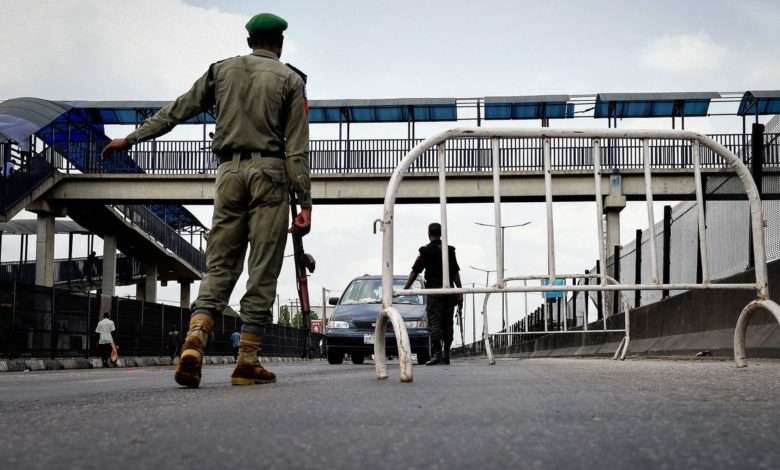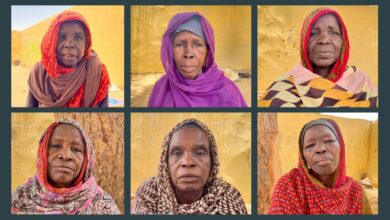Checkpoint Economy: How Security Personnel Deprive Poor Investors Return On Investment In Southeast

Although Nigeria’s Southeast region is the least volatile security-wise, it is perhaps the most policed with the security agencies, including the police, the army and drug enforcement as well road safety corps and task forces erecting checkpoints in close proximity to one another.
However, such checkpoints are avenues for extortion, intimidation and deprivation of investors whose resources are used to “unofficially’’ service security personnel on duty rather than provide security, a HumAngle investigation reveals.
Travelling from Abuja to the Southeast, HumAngle found that security checkpoints are located far apart from each other, sometimes 20km to 50km apart in the North-central region unlike in the Southeast where they are close to each other, sometimes few metres apart.
And unlike in other parts where personnel at checkpoints scrutinise travellers for security breaches such as drugs, traffic offences and other suspected acts of criminality, security personnel in the Southeast erect posts to collect bribes.
The distance from Enugu to Abakaliki, Ebonyi State capital, in the Southeast, is 70km with a travel time of one hour and 10 minutes but it has no fewer than 12 security checkpoints where transporters obligatorily pay between N200 and N500 to security personnel to operate on the route.
Uchenna Ede, a commercial bus conductor, told HumAnge that he spent an average of N3,000 on a trip between Enugu and Abakaliki for which he collects a maximum N9,800 per trip at N700 per passenger in the 14-seater bus which he assists a driver to run.
Ede said he and the driver usually operated three round trips on the route daily in which case they earn a maximum of N58,800 per day. However, there are passengers who stop at destinations in-between and pay less from N400 to N500 or less.
He said that out of the sum, the bus owner collected a maximum of N6,000 per day from the investment, adding, “If it is a new bus the owner gets N6,000 but if it is an old bus, he gets N5,000.”
The situation is not different on other routes. From Abakaliki to Owerri through Abia State, transporters, including state –owned services, pay N200 at each of the numerous checkpoints along the route.
Godwin Uka (not real name), a driver with Imo State Transport Corporation, said “as long as you operate outside the state which owns the company, you must pay.
“If you don’t pay, they won’t allow you to go or they delay you,” Uka said, adding that problem had been brought to the attention of the respective state governments which promised to address the issue but nothing had been done.
Uka, however, said that the reasons drivers paid the bribes included the fact that many did not have valid driver’s licence, their vehicles not road worthy and their registration documents not valid.
But a mini-bus driver in Owerri, Imo State, Chikodi Nwigwe, said Uka’s statement might not be totally correct.
He said “although my vehicle particulars are in order, if I insist on not paying they will delay me the whole day and my business will suffer.’’
Chinedu Okoro, a mini-bus driver with Anambra Transport Corporation, who shared the views of other drivers, told HumAngle that security personnel in the region were not happy with the government lifting of the ban on interstate movement over the COVID-19 pandemic.
Okoro said, “During the lockdown when we used alternative but remote routes, security men, including soldiers, moved to the interior where they struck deals to enable us to pass.”
He said since the lifting of the ban, the security men had returned to the highways “to collect whatever you can afford to give them’’.
HumAngle also found that drivers are encouraged to offer bribes by passengers who urge them “to settle them’’ to avoid wasting time.
“They must find one fault to delay us,’’ a passenger in a bus travelling from Oweri, the Imo State capital, to Awka, Anambra State, said.
While many seem to have come to live with the experience, some drivers are losing patience over the problem.
Chinedu Opara, a driver, told HumAngle that the people’s patience was running out, saying: “One day we will all march to Government House. I won’t mind carrying a gun to kill them. I don’t care what happens to me after.
“How can you buy a bus to feed your children and all you do is pay all manner of tolls?, he asked.
Opara said that aside police extortion, transporters were made to pay different kinds of levies by task forces set by the Imo State government and transport unions.
Meanwhile, Mr Vitus Ekeocha, the Director of National Orientation Agency in Imo State, said there was a need for state governments in the Southeast to address the issue of extortion by security personnel in the region.
Ekeocha said the patience of the people was running out over the issue and that if not addressed, trouble might erupt.
Support Our Journalism
There are millions of ordinary people affected by conflict in Africa whose stories are missing in the mainstream media. HumAngle is determined to tell those challenging and under-reported stories, hoping that the people impacted by these conflicts will find the safety and security they deserve.
To ensure that we continue to provide public service coverage, we have a small favour to ask you. We want you to be part of our journalistic endeavour by contributing a token to us.
Your donation will further promote a robust, free, and independent media.
Donate Here




